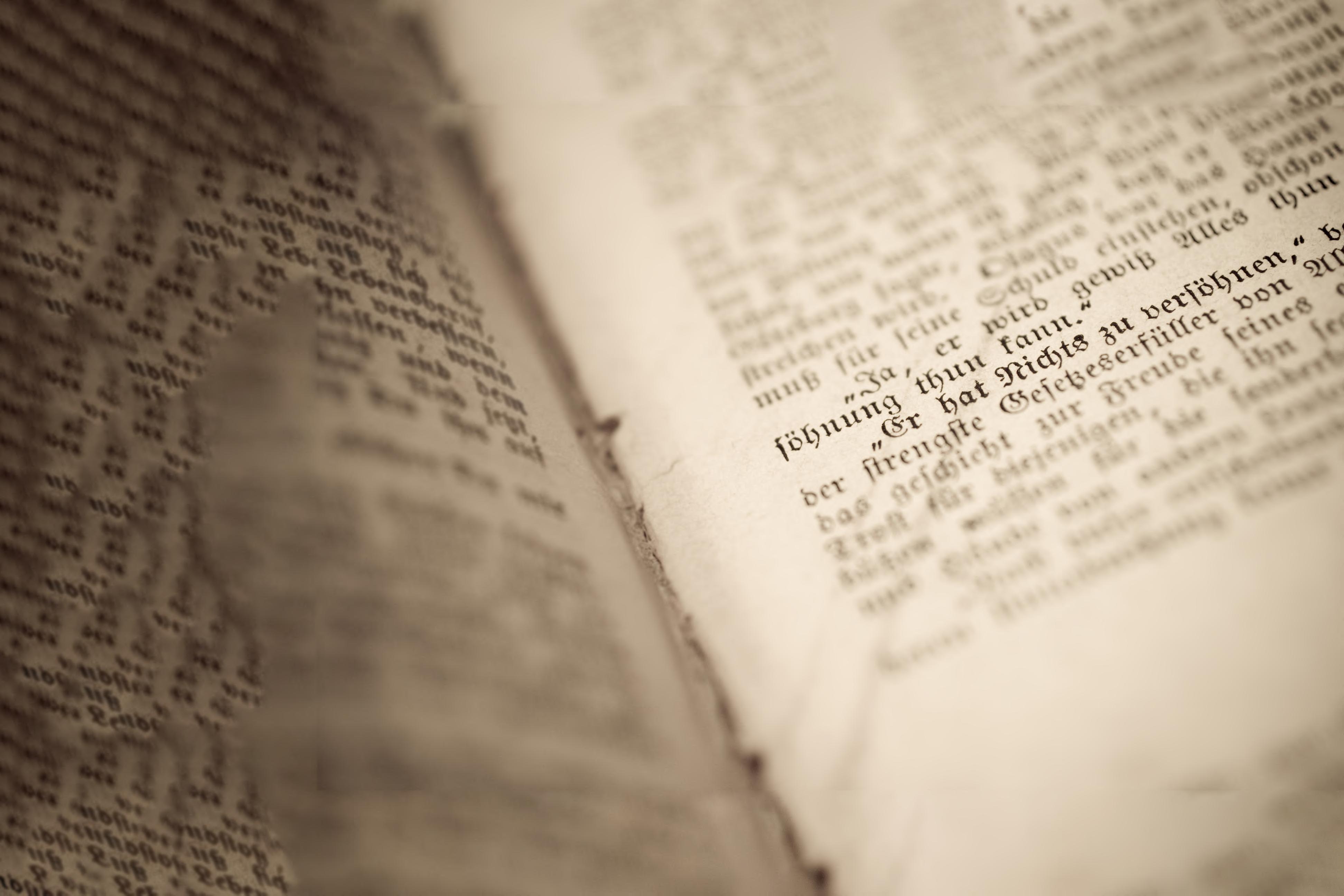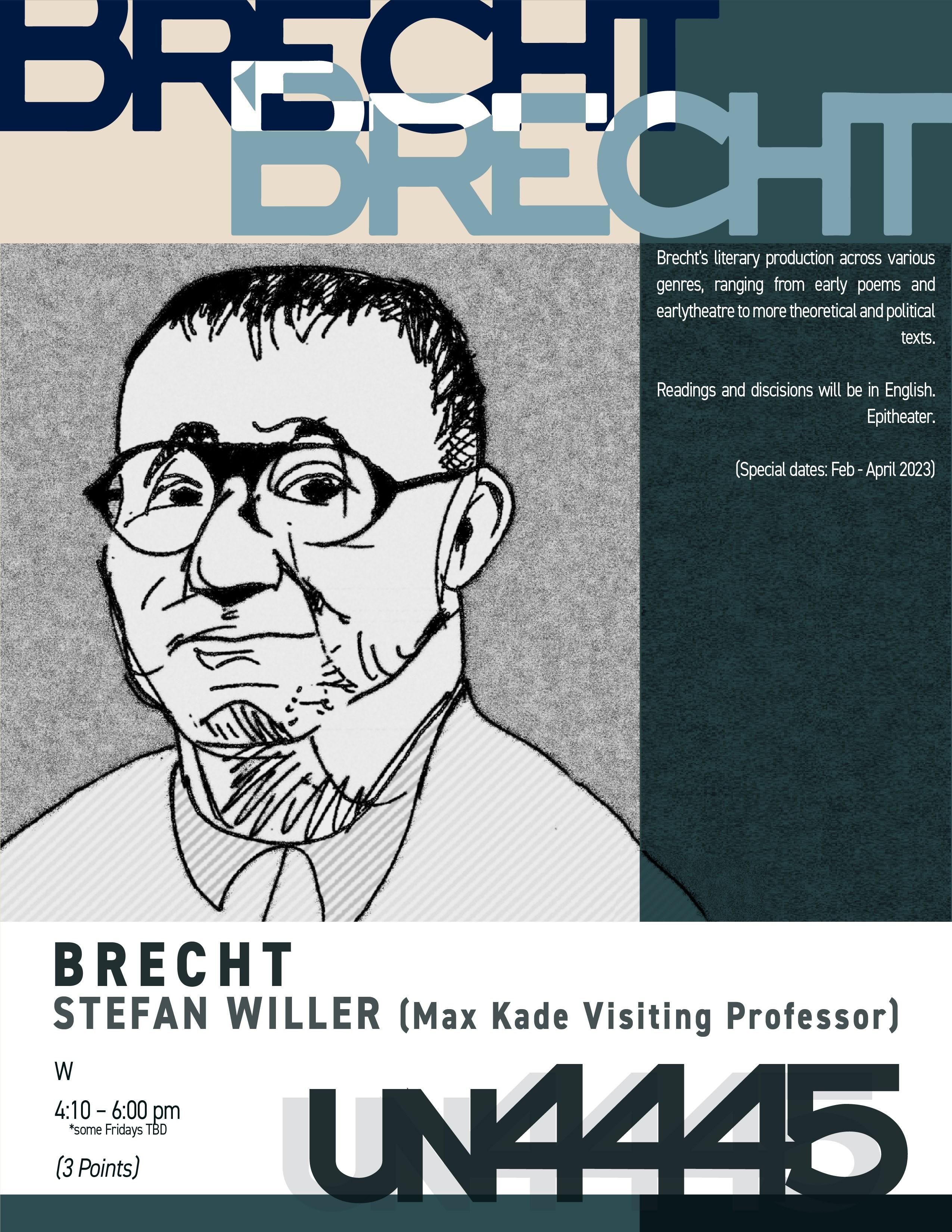

Paul Celan, a German-language survivor poet, speaks of “co- / writing” at the “heel,” playing with an idiom that evokes tenacious pursuit and intimate clinging. This course will trace Jewish literature from a variety of German-speaking territories from the 18th century to the present, with a particular focus on the hyphen that bridges and divides “German–Jew.” Does German-Jewish writing evince the counterculture of a persecuted minority, or does it strive to inhabit (or even define) ‘German ness’? Who is clinging to whom, and what kind of writing emerges ‘at the heel’? We will pay attention to writers’ unconventional relationship to genre; their oscillation between autobiography, storytell ing, philosophy, cultural criticism, and religion. Moving across different political formations in Central Europe, the course will explore writers’ conflictual attitudes towards their Jewish and German identities. A key question will be how writing strategies transform in the aftermath of the Shoah, and in response to evolving European memory culture. Readings will include works by Mendelssohn, Maimon, Varnhagen, Kafka, Rosenz weig, Benjamin, Scholem, Celan, Sachs, and Klüger. We will conclude with a consideration of what it means to write in German as a Jew today, and how this tradition bears on contemporary debates about ‘identity politics.’
No prerequisite courses are required. Course Readings and discussion will be in English.
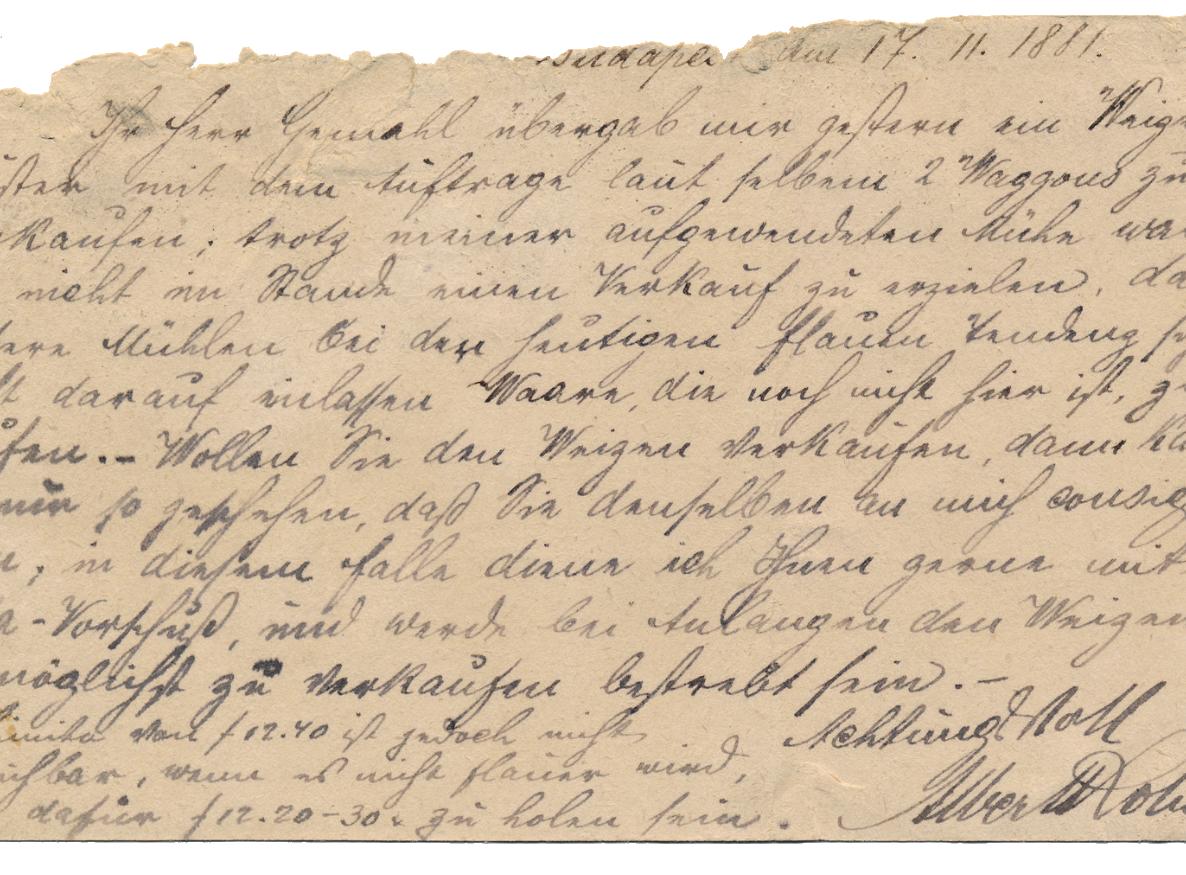
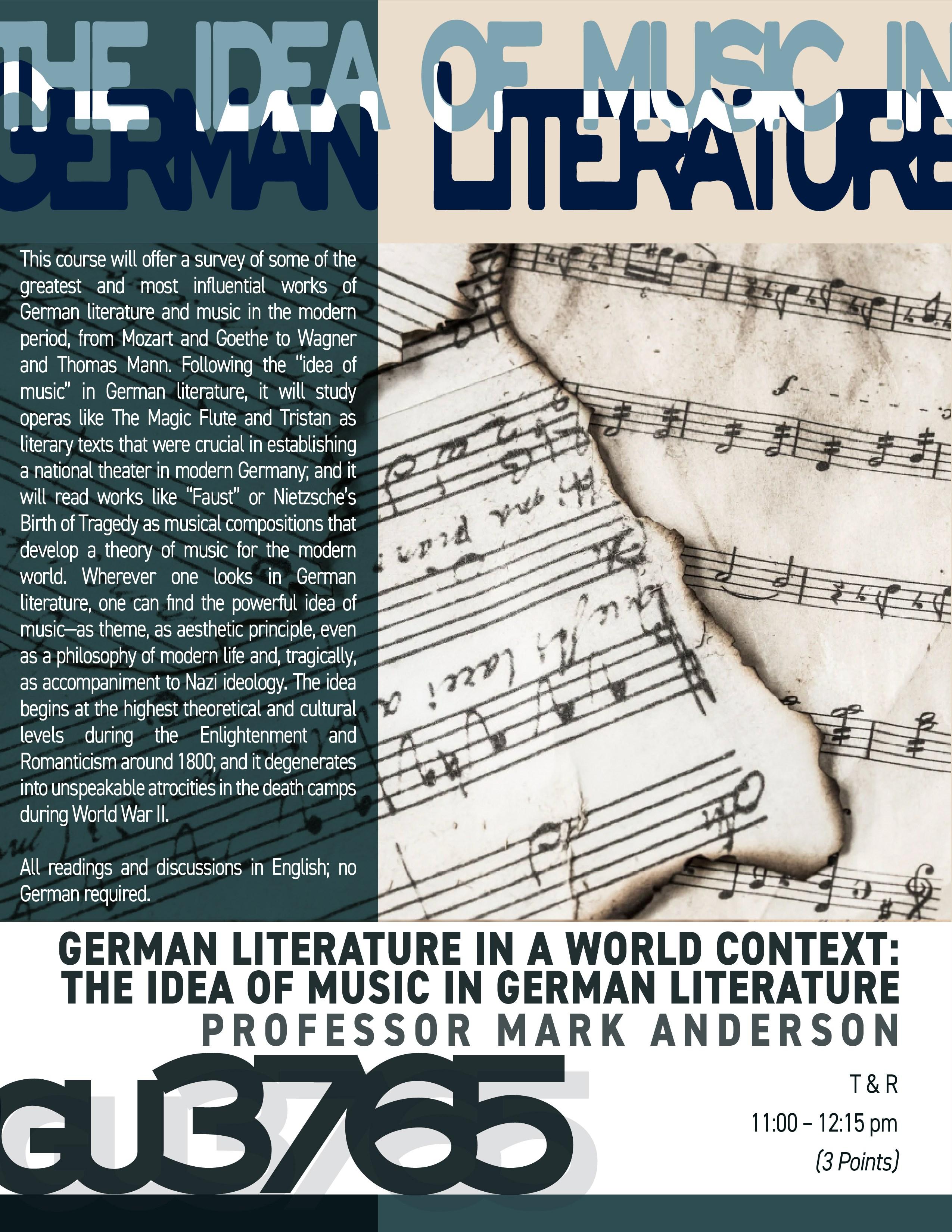


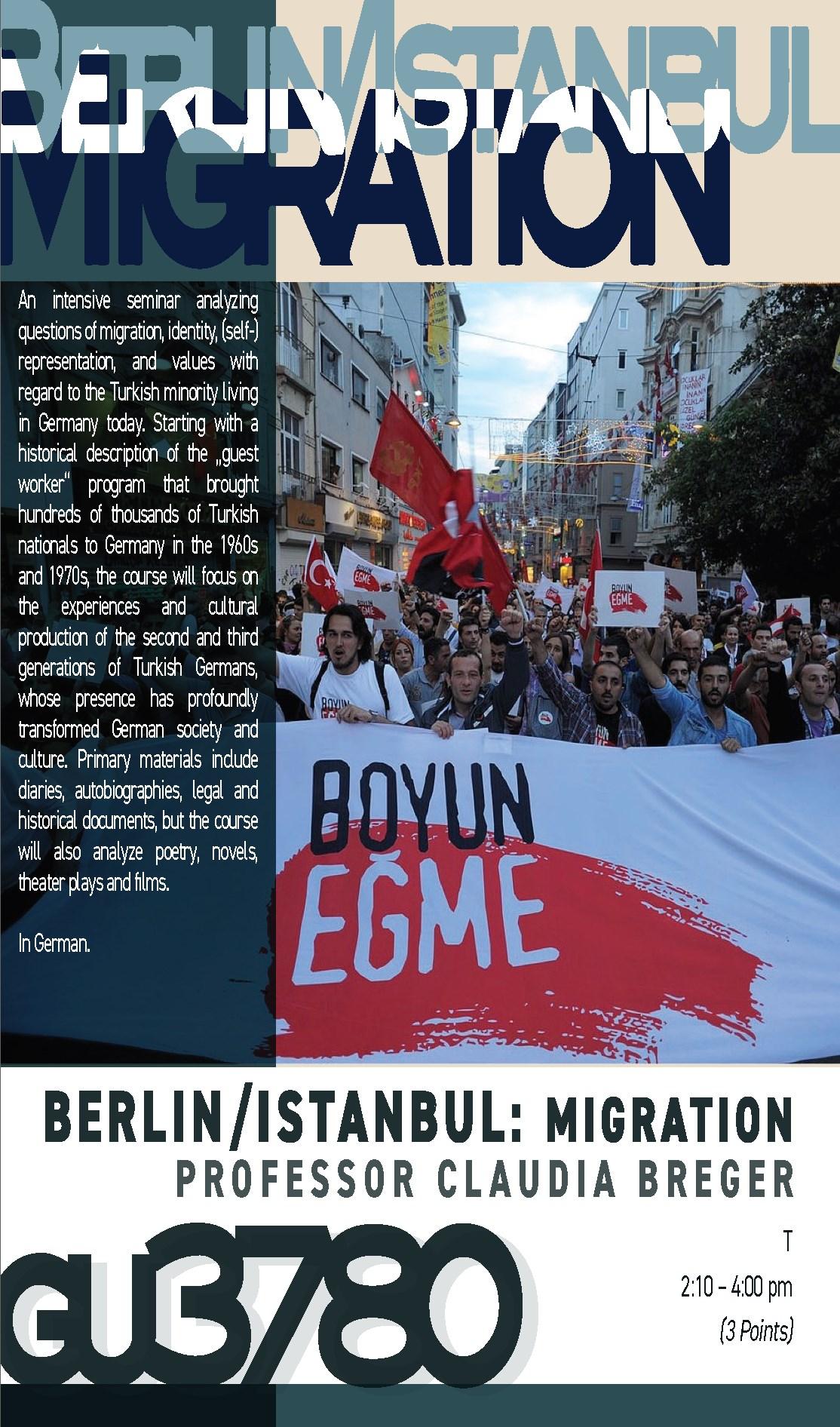
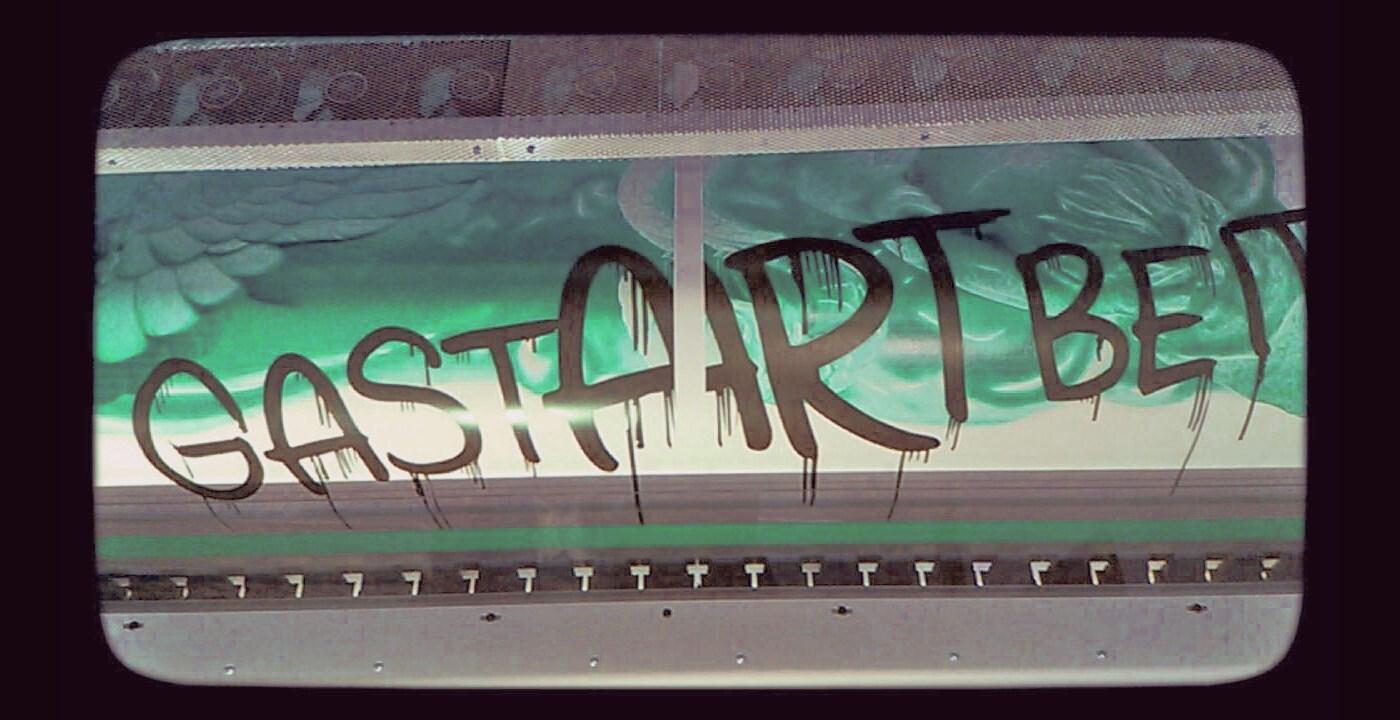


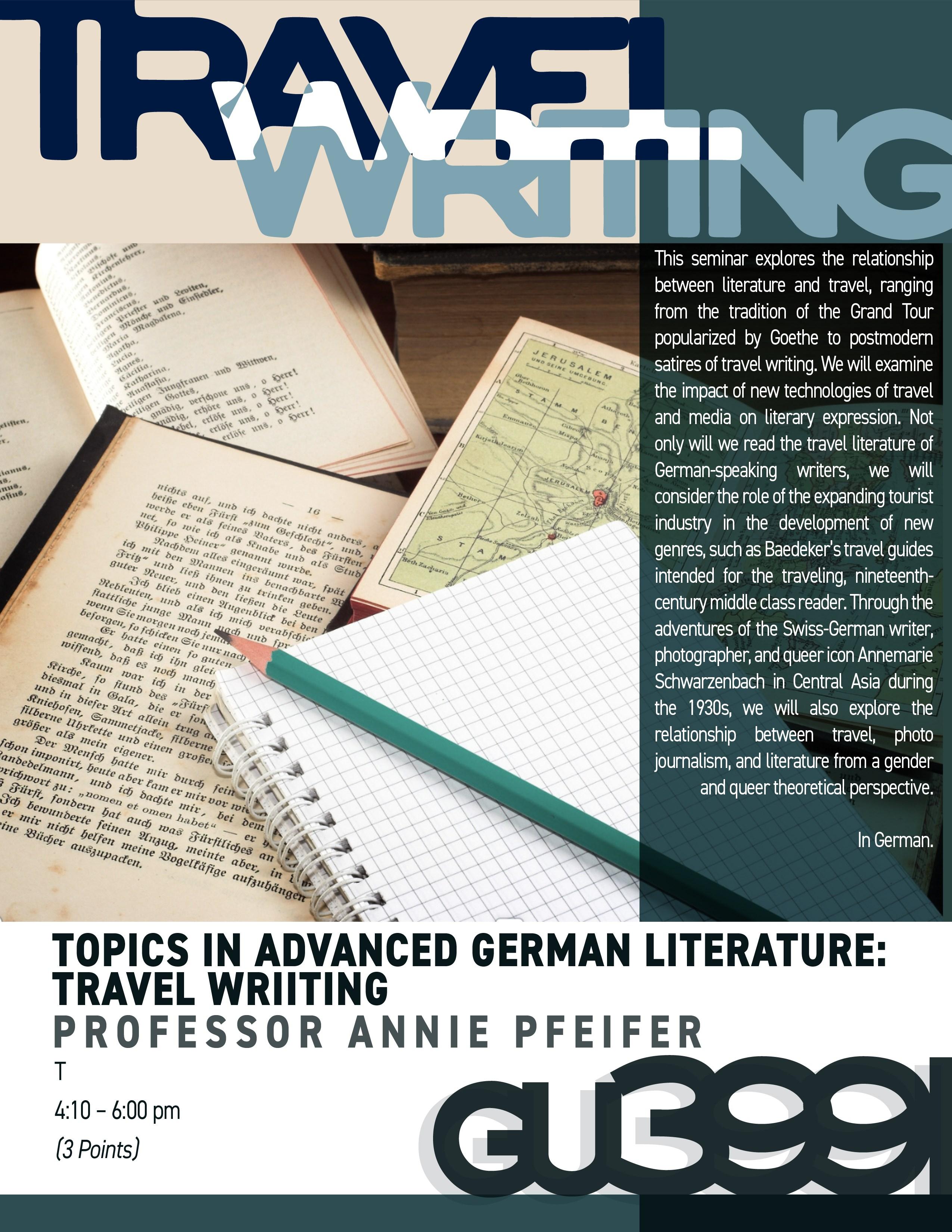


A survey of the most influential literary theories of the twentieth century, this seminar will discuss seminal contributions to hermeneutics, psych analysis, structuralism, deconstruction, discourse analysis, and gender theory. Each section will juxtapose two representative authors whose texts either complement or contradict one another. Based on close readings of exemplary texts, we will explore basic concepts of these theories and examine their intersections and differences.
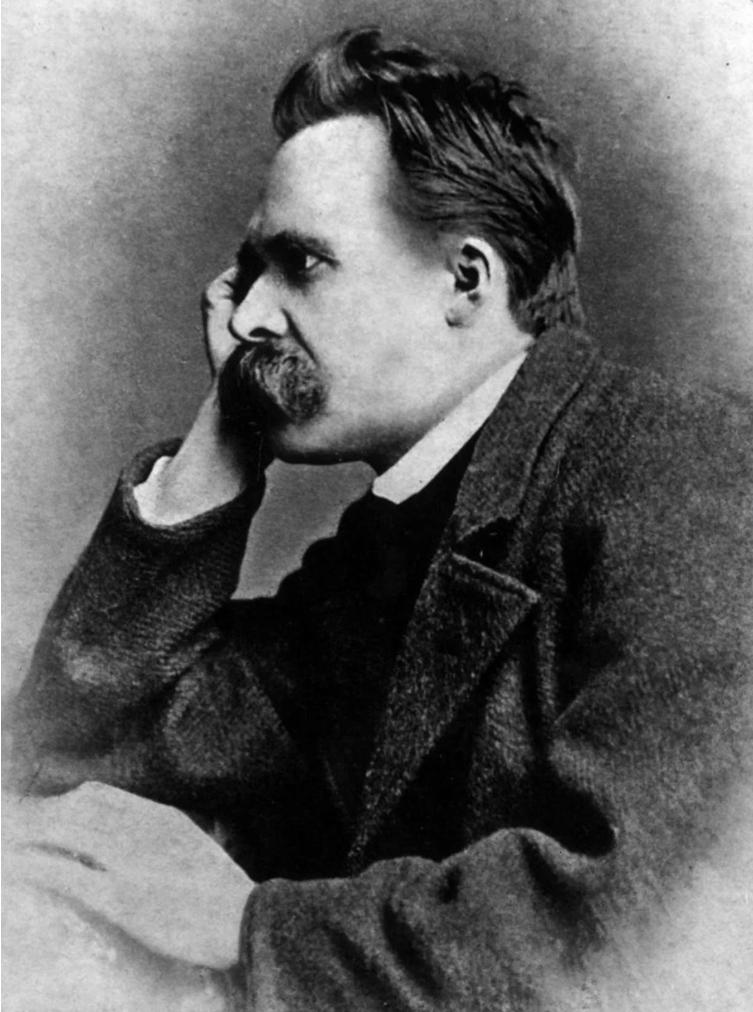
A second focal point of the seminar will be on applications of theory to literature. We will analyze their reformulation as methodologies in literary studies and discuss how they influenced different approaches to literature. The aim of the seminar will ultimately be to scrutinize critically these “applications” of theory to literature.
Readings and discussions in English. No prior knowledge of literary theories required.
In the wealth of plots, characters, settings, descriptive details and narrative strategies it has generated over the course of three centuries, the European novel has proved to be one of the most inventive and resilient forms of Western literature. Nonetheless, certain paradigms have predominated from the beginning, two of which will form the center of this course: 1) the illusion of a "true," that is historically grounded story, and 2) the bourgeois family as an organizing narrative principle. This course will analyze seven strikingly diverse European novels from Spain, England, France and Austria in order to show the continuity through variation of these two paradigms. Students will read some of the major theorists of the novel (Auerbach, Watt, Bakhtin, Moretti), but the emphasis will be on developing a theory based on the novels themselves.
All readings and discussions in English, though reference will frequently be made to the particular linguistic and historical circumstances of the original texts.
